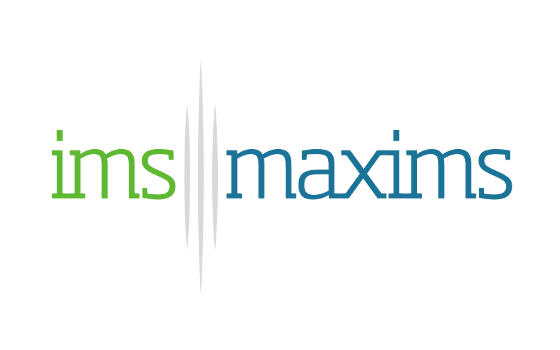 NHS hospitals across the country will be able to respond to paperless and personalised care ambitions by procuring an IMS MAXIMS electronic patient record (EPR) technology through a new clinical technology framework. The pioneering technology specialist has been awarded a place on the new Clinical and Digital Information Systems Framework Agreement (CDIS), launched by the NHS London Procurement Partnership (LPP).
NHS hospitals across the country will be able to respond to paperless and personalised care ambitions by procuring an IMS MAXIMS electronic patient record (EPR) technology through a new clinical technology framework. The pioneering technology specialist has been awarded a place on the new Clinical and Digital Information Systems Framework Agreement (CDIS), launched by the NHS London Procurement Partnership (LPP).
Following robust scrutiny by LPP, IMS MAXIMS scored highly for its EPR technology, which is now available through the framework to acute care, mental health and community providers. The OJEU compliant framework offers providers with an alternative to more traditional routes to acquire large scale technology solutions that can be time-consuming and costly.
Shane Tickell, CEO, IMS MAXIMS said: "NHS organisations are often constrained by lengthy procurement processes that can delay the implementation of digital technologies urgently needed by the health service and subsequently the benefits for staff and patients. The CDIS framework gives NHS service providers an alternative, more effective route to buying technology that will enable them to deliver the government’s target of becoming paperless by 2020, and to place important information where it is needed to deliver personalised and more effective patient care."
NHS organisations are being offered access to IMS MAXIMS’ full suite of patient information and clinical software solutions, which are already delivering benefits in more than 180 organisations. This includes options to procure technology for patient administration and information, order communications and diagnostic reporting, patient correspondence, activity scheduling, bed management and electronic discharge documentation, as well as departmental systems for emergency, therapies, spinal injuries, cancer care, cardiology and care of the elderly.
Shane Tickell added: "Organisations that use the CDIS framework will save more than just procurement time. By using IMS MAXIMS open source technology, and collaborating with our change management experts, trusts will be able to deploy the system in six to 12 months, rather than the 18 to 24 months typically needed for an EPR deployment, whilst still being able to tailor the technology to specific needs."
Notable use of IMS MAXIMS scalable EPR technology in the NHS has been widely publicised. The company's partnership with Taunton and Somerset NHS Foundation Trust helped the organisation to become a Global Digital Exemplar last year, recognised by government for its innovative digital offering having implemented IMS MAXIMS EPR, openMAXIMS. The successful deployment has put the trust on course to achieve tens of millions of pounds in cash savings and service benefits in the 10-year deployment period, and will become paper-free by 2018.
Similar transformation programmes are underway elsewhere in the country, including Blackpool Teaching Hospitals NHS Foundation Trust, Wye Valley NHS Trust and Ramsay Healthcare.
LPP's CDIS framework, which has a potential value of up to £1.3bn, has been developed at the request of the London NHS Chief Information Officers’ Council and the consortia of 38 NHS trusts which built the first Clinical Information Systems framework in conjunction with LPP in 2013.
This appointment to CDIS follows similar success for IMS MAXIMS in recent months, with the company being re-listed on the recently updated Government Framework for Digital Outcomes and Specialists (DOS) and being awarded a place on G-Cloud (8) for the fourth consecutive year.
About NHS London Procurement Partnership
LPP is a membership organisation, founded, funded and governed by NHS organisations. Working with its members, it supports the NHS to make the most of its purchasing power to maximise investment in patient care - helping trusts to deliver the highest quality services while at the same time ensuring value for money. Since its formation in 2006, LPP and its members have saved more than £1bn. LPP has more than 90 members including acute, mental health and community NHS organisations, and CCGs. Many of its frameworks are also open to the wider public sector.
About IMS MAXIMS
IMS MAXIMS is an award winning clinical technology specialist committed to improving the coordination of patient care in healthcare environments.
Its expert team works in partnership with healthcare organisations to identify and deliver tailored, sustainable information sharing technology solutions supporting the provision of safer and more efficient care for current and future generations.
The organisation's 30-year history of collaborating with clinicians has resulted in the development of proven, flexible, user-friendly, safe and interoperable open source electronic patient record software.
With an ambition to meet today’s healthcare challenges, IMS MAXIMS makes its software available without a licence fee and offers flexible options to support healthcare providers with implementation and maintenance.
Its open technology has increased collaboration in the development of the software which has resulted in better clinical engagement and empowerment across hospital wards and departments.
Deployment times are fast, meaning clinicians and patients can benefit from efficiency and safety improvements in rapid time.